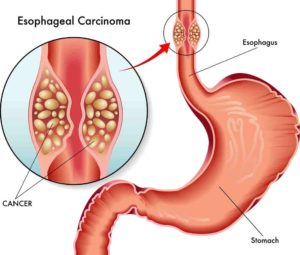Leave a Comment:
5 comments
After ultrasonic exam on my tumor today the results were T3, N0 Mx by endosonographic criteria. Scheduled for a PET scan on Tuesday? My Oncologist is suggesting Chemo/Radiation followed by surgery. My tumor is located at the junction of esophagus/stomach. Do you feel this an accurate stage? Having really hard time swallowing. I’m a whit male 65 years of age.
ReplyHi Ed,
I am sorry to learn of your EC diagnosis. Keep in mind however, that you have been staged with early EC so your prognosis should be much better than otherwise.
To answer your question “Do you feel this an accurate stage?” While there is/are always diagnostic factors that I don’t know without seeing you, the articles linked and excerpted below speak to your situation. The first article explains why the EUS is the standard for diagnosing early EC and why your oncologist may choose to also have a PET scan.
The second article, if I read it correctly, says that EC is a difficult to treat cancer with a poor five-year survival average. My guess is that your oncologist is working hard at the diagnosis stage (both EUC and PET) and is also treating your cancer aggressively (chemo, radiation and surgery is aggressive and may cause short, long-term and late stage side effects) but by being so aggressive, your chances of beating the odds are pretty good.
The most important point is that a key factor in your diagnosis is that your cancer is local- no lymphnode or distand mets involvement. My guess is that your oncologist wants to confirm this with a PET scan.
I hope this answers your question. Let me know if you have any other questions.
Hang in there,
David Emerson
Esophageal cancer: staging system and guidelines for staging and treatment
“As the most sensitive test for locoregional staging of EC, endoscopic ultrasound (EUS) influences the development of an optimal oncologic treatment plan for a significant minority of patients with early cancers, which appropriately balances the risks and benefits of surgery, chemotherapy and radiation. EUS is costly, and may not be available at all centers. Thus, the yield of EUS needs to be thoughtfully considered for each patient. Localized intramucosal cancers occasionally require endoscopic resection (ER) for histologic staging or treatment; EUS evaluation may detect suspicious lymph nodes prior to exposing the patient to the risks of ER. Although positron emission tomography (PET) has been increasingly utilized in staging EC, it may be unnecessary for clinical staging of early, localized EC and carries the risk of false-positive metastasis (over staging). In EC patients with evidence of advanced disease, EUS or PET may be used to define the radiotherapy field. Multimodality staging with EUS, cross-sectional imaging and histopathologic analysis of ER, remains the standard-of-care in the evaluation of early esophageal cancers…
Esophageal cancer: staging system and guidelines for staging and treatment
Recommended treatment is primarily dictated by stage, tumor location, and patients’ medical fitness for receiving a particular therapeutic modality. However, definitive data from randomized trials to guide the treatment of esophageal cancer is lacking for many clinical situations. Outcomes also generally are relatively poor with many treatment strategies, so establishing optimal treatment for different clinical situations remains an area of active research (28). The NCCN guidelines reflect the lack of definitive evidence and often allow a spectrum of potential treatments for many clinical situations. Given both the generally poor overall prognosis and the potential morbidity associated with therapy, multidisciplinary evaluation by surgery, medical oncology, and radiation oncology should be considered for all patients before a treatment strategy is initiated…”
ReplyThank You David for the quick reply. I start Chemo/radiation the week of April 8,2019 here in Chattanooga, TN. I’m not looking forward to it but want the best chance of beating this. I realize each individual is different and each case as well, so will stick to this and then rest up for surgery probable sometime late June. I really appreciate the info you provided and will try to stay in touch to let you know the progress.. Thanks Again, Ed
ReplyI feel the surgeon that was recommended to me is taking too long to schedule my surgery.
ReplyHi John,
Waiting for a surgeon to schedule your surgery can cause real anxiety. What stage of EC were you at diagnosis? Have you undergone any therapies at all at this point? Would you consider “pre-habilitation” to prepare for your surgery?
Let me know, thanks.
David Emerson
Reply



